

November 2022 Edition!
AIU News + Essays + Education + Culture + Science + Technology + Art + Design + Body + Mind + Environment + Human Rights + Animal Rights + Banking and Finance + About AIU


AIU News + Essays + Education + Culture + Science + Technology + Art + Design + Body + Mind + Environment + Human Rights + Animal Rights + Banking and Finance + About AIU



 Call for Papers
This Conference will be held
11–13 October 2023
at University of Guadalajara,
Guadalajara, Mexico.
We invite proposals (in English
and Spanish) for paper
presentations, workshops/
interactive sessions, posters/
exhibits, colloquia, focused
discussions, innovation
showcases, virtual posters, or
virtual lightning talks.
2023 Special Focus:
“Technologies of sustainable
food: facing the challenge of
climate change”
Theme 1: Food production and
sustainability.
Theme 2: Food, nutrition,
and health.
Theme 3: Food politics,
policies, and cultures.
Become a Presenter:
1. Submit a proposal
2. Review timeline
3. Register
Advance proposal deadline
December 11, 2022
Advance registration deadline
January 11, 2023
Visit the website:
https://food-studies.com
Call for Papers
This Conference will be held
11–13 October 2023
at University of Guadalajara,
Guadalajara, Mexico.
We invite proposals (in English
and Spanish) for paper
presentations, workshops/
interactive sessions, posters/
exhibits, colloquia, focused
discussions, innovation
showcases, virtual posters, or
virtual lightning talks.
2023 Special Focus:
“Technologies of sustainable
food: facing the challenge of
climate change”
Theme 1: Food production and
sustainability.
Theme 2: Food, nutrition,
and health.
Theme 3: Food politics,
policies, and cultures.
Become a Presenter:
1. Submit a proposal
2. Review timeline
3. Register
Advance proposal deadline
December 11, 2022
Advance registration deadline
January 11, 2023
Visit the website:
https://food-studies.com
 OCTOBER, 2022.
This graduate student
completed the majority of the
requirements to obtain honors,
which included a 4.0 GPA,
published works, recommendation
from their advisors,
patent a product, etc.
Congratulations!
OCTOBER, 2022.
This graduate student
completed the majority of the
requirements to obtain honors,
which included a 4.0 GPA,
published works, recommendation
from their advisors,
patent a product, etc.
Congratulations!
 OCTOBER, 2022.
These graduate students
completed their program
with a high cumulative grade
point average, which reflects
the quality of performance
within their major.
Congratulations!
OCTOBER, 2022.
These graduate students
completed their program
with a high cumulative grade
point average, which reflects
the quality of performance
within their major.
Congratulations!

| Juan Ernesto Ferrari Bachelor of Arts Art History Argentina |
Hector Ivan Rodriguez Doctor of Science Statistics Argentina |
Pablo Gaiazzi Doctor of Education Distance Learning Argentina |
Pretty N. Nkomba-Ntsosa Master of Science Psychology Botswana |
Mboule Andre Doctor of Philosophy Project Management Cameroon |
Anyanwu Reginald Chidiebere Doctor of Philosophy hy Occupational Health and Safety Mgmt. Canada |
| Emmanuel Onyebuchi Abugu Doctor of Philosophy Accounting Canada |
Abdou Mahamane Master of Social and Human Studies Conflict Resolution and Peace Building Chad |
Sergio Luis Gonzalez Bello Bachelor of Agriculture Engineering Plant Physiology Colombia |
Amata Mutiri Bwando Certificate of Translation Translation and Interpretation Congo (DRC ) |
Petra Jeannette Garcia García Doctor of Science Psychopedagogy Dominican Republic |
Santos Yoselyn Romero de Rodriguez Bachelor of Education Education El Salvador |
| Felipe Loká Ritope Certificate of Business Administration Business and Economics Equatorial Guinea |
Yonas Haile Habte Master of Business Administration Business Administration Eritrea |
Lionel Sama Enga Doctor of Business Administration Business Administration Germany |
Alejandra Estefani Figueroa Gómez Bachelor of Business Administration Business Administration Guatemala |
Ana Alejandra Alvarez Sandoval Bachelor of Business Administration Business Administration Guatemala |
Andrea Susette Castellanos Aguilar Bachelor of Business Administration Business Administration Guatemala |
| Byron Ariel Pérez Marroquín Bachelor of Business Administration Business Administration Guatemala |
Eynnar Sussely Ramírez Aguirre Bachelor of Business Administration Business Administration Guatemala |
Gerardo Rodrigo Ventura Cano Bachelor of Business Administration Business Administration Guatemala |
Guisela M. Estrada Guerra De Soto Bachelor of Business Administration Business Administration Guatemala |
Hasbeld Mariano García Castillo Bachelor of Business Administration Business Administration Guatemala |
José Carlos Juárez Aguilar Bachelor of Business Administration Business Administration Guatemala |
| José Roberto Barrios Barrios Bachelor of Business Administration Business Administration Guatemala |
Josué R. Helaman Lucas Eguizabal Bachelor of Business Administration Business Administration Guatemala |
Juan Fernando Juracan Argueta Bachelor of Business Administration Business Administration Guatemala |
Juan Manuel García Amaya Bachelor of Business Administration Business Administration Guatemala |
Karen Margarita Mencos Arellano Bachelor of Business Administration Business Administration Guatemala |
Miguel Angel Aleman Rodríguez Bachelor of Business Administration Business Administration Guatemala |
| Milton Arnoldo Cordón Urrea Bachelor of Business Administration Business Administration Guatemala |
Miriam Juárez de Cospín Bachelor of Business Administration Business Administration Guatemala |
Ricardo José Morales Fernández Bachelor of Business Administration Business Administration Guatemala |
Sandra Patricia García Coronado Bachelor of Business Administration Business Administration Guatemala |
Walter Leonardo Chajón Morales Bachelor of Business Administration Business Administration Guatemala |
Rebeca Emperatriz Vega Rodriguez Bachelor of Science Psychology Honduras |
| Janvi Doshi Sutaria Doctor of Philosop hy Psychology India |
Stacy-Ann Monalesia Gayle Master of Education Educational Administration Jamaica |
Michael Rees Doctor of Philosop hy Educational Psychology Jersey, Channel Islands |
Mannete Leetoane Khotle Master of Psychology Industrial and Organizational Psychology Lesotho |
Aime Sharon Aguilar Terán Master of Science Architecture Mexico |
Maria Teresa Duran Zarate Bachelor of Architecture Architectural Design Mexico |
| Paulo Junta Jornão Bachelor of Science Electrical Engineering Mozambique |
Oladimeji Isiaka Olayinka Doctor of Philosop hy Public Health Nigeria |
Adewale Akanni Ojo Doctor of Philosophy Transportation Management Nigeria |
Egbegi A. Neville Bachelor of Science Construction Technology Nigeria |
Ifeanyi Fort Dike Doctor of Business Administration Business Management Nigeria |
Alex Yaza Tamme Doctor of Business Administration Finance Nigeria |
| Karsten I. Mensah Bachelor of Business Administration Business Administration Nigeria |
Pedro A. Gallardo M. Junior Bachelor of Science Civil Engineering Panama |
Jesus Rivera Licla Master of Science Environment and Sustainable Development Peru |
Marie Oquendo López Doctor of Marketing Marketing Puerto Rico |
Liz Adianez Díaz Rodríguez Doctor of Education Education Puerto Rico |
Liza I. Valle Espinosa Doctor of Science Biology Puerto Rico |
| Jelena Spirovski Biberdzic Master of Science Psychology Serbia |
Mohamed Daud Omar Master of Science Public Health Somalia |
Suliman Bah Master of Science Renewable and Sustainable Energy South Sudan |
Lokabang Elizai Athanasio Woja Master of Science Nutrition South Sudan |
William Charles Lorue Laku Bachelor of Science Civil Engineering South Sudan |
John Gerard Ryan Doctor of Economics Sustainability Spain |
| Colin Neil Gosine Doctor of Business Administration Leadership in Business Administration Trinidad and Tobago |
Erol Memişoğlu Bachelor of Science Electronics and Communication Engineering Türkiye |
Muhammad Ragheb El-Sergani Master of Science Business Administration United Arab Emirates |
Juan de la Cruz Paz Villarreal Bachelor of Public Administration Public Administration USA |
Miles Paschal Griffith Doctor of Philosop hy Economics USA |
Emily Makwarimba Bachelor of Business Administration Business Administration Zimbabwe |

 Gyanesh Kumar
Gyanesh Kumar
Doctor of Business Administration
July 20, 2022
“AIU has given me an opportunity
to learn a very basic and fundamental
thing of life: “Solve a Problem”.
Solving a problem in the life of many
people leads to a great cause of the humanity.
In my Thesis also I emphasized
a lot to Solve the Problem of the society
and be a successful Entrepreneur.
AIU gave us an opportunity to select
and complete the course as per our
convenience, but under competitive and
challenging environment. It was very
interesting to see that students from all
over the world study in AIU. ...
READ FULL TEXT: https://www.aiu.edu/Testimonialdetail.html?Ite
mID=1879&rcid=73&pcid=63&cid=73
 Said Abdillaahi
Said Abdillaahi
Bachelor of Public Administration
July 21, 2022
“In retrospect looking back 6
months today when I first responded
to an AIU marketing ad on
Facebook and got enrolled for a Bachelor
degree in Public Administration,
I feel nostalgic, optimistic and highly
motivated to reach greater heights in
my newly found academic progress.
I must admit that my daily life routine
has been transformed for the better,
forever. From daily routine involving 18
hours of hectic political and technical
meetings over reform through capacity
building work and related office chores
to a well-managed and more productive
daily routine involving 2 hours of
spiritual uplifting, 3 hours of leisure and
healthy body building, 3 hours of learning
and knowledge building and 10 hours
of work-related chores.
I will always be indebted to learn
the AIU’s 11 elements and the business
communication learning materials
meant for enhancing personal productivity
that provided guidance to newly
acquired soft skills starting with:
Improved time management resulting
in reducing office work from 18 hours to
10 hours (56%) a day and re-allocating
44% of time to academic studies, body
health building, spiritual uplifting and
leisure. I could do in 10 hours what I
used to do in 18 hours.
Enhanced body health through physical
exercises and fasting two days per
week resulting in reduced weight from
120 kg to 105 kg. Target weight is 85 kg
therefore 25 kg more to lose.
Computer and communication technology
gadgets are now user-friendly.
The online learning platforms ...
READ FULL TEXT: https://www.aiu.edu/Testimonialdetail.html?It
emID=1880&rcid=73&pcid=63&cid=73
 Guei Ounleu Gerard
Guei Ounleu Gerard
Master of International Relations
July 22, 2022
“Thank you for taking the time to
talk at length with me during
the week about my program. I appreciated
your willingness to speak so openly
about the kinds of qualifications that
are desirable for work in this field of my
study (International Relations). Your
questions and advice about the course
I have done. What I have learned more
about the field was extremely helpful. I
intend to follow up on the many helpful
suggestions made by the university.
The distance learning orgaized by AIU,
are really help I and my family to achive
our goals and get ahead of our dream.
We are so much grateful for the amazing
program, with the patient of all the
teachers at AIU.
I am excited by the prospect of meeting
with all the staff next graduation
even to express my gratefulness talk
about the experiences at AIU in the
International Relations Program. I have
written to in my final the essay eagerness
to be trained as a facilitator for the
Conversations on International Relation
and Diplomacy project. In addition, I
plan to investigate both the ...
READ FULL TEXT: https://www.aiu.edu/Testimonialdetail.html?Ite
mID=1881&rcid=73&pcid=63&cid=73
 Mark Carpenter
Mark Carpenter
Bachelor of Holistic Education
August 1, 2022
“My experiences at AIU started
around January 1st, 2022. The
eight months that I spent at AIU were
full of learning experiences. The course
that comes to mind first is the one that
I named “Meditation,” where I read
about the art and science of meditation
and wrote an essay about it. I feel
that the opportunity with doing such a
course in AIU helped me gain insight
into things in the world that otherwise
I would not read about. I realize though
that knowledge is a vast thing and there
are many books about a single topic.
With “Meditation” I feel that I could
have come up with a sequel course and
could have named it “Meditation 2.”
I also had the opportunity to express
my own creative thoughts about how
the world works. I think that human
society is constructed as a tree, and
that the high portion of the tree has
many advantages while the lower portion
of the tree has disadvantages. As
nutrition is sucked out the soil by the
roots and taken to the high parts, soil
represents enslavement.
My tutor Tobi called often to check ...
READ FULL TEXT: https://www.aiu.edu/Testimonialdetail.html?It
emID=1883&rcid=73&pcid=63&cid=73
STUDENT SPACE
8

We are living in a world
we never thought would
come: climate change at its
peak, lack of food and poor
education.
A high percentage of the
inhabitants of this planet
wants and wants goods and
more goods: it’s the society of
having. The vast majority of
human beings think that just
by having they have already
achieved happiness.
Analyzing these three aspects,
the conclusion is that
the basis of everything is
education.
If you have education,
if you learn:
1. We obtain the knowledge of
what our planet is for the life
of all beings.
2. We learn what food is and
how to structure livestock,
agriculture and fishing.
The United Nations (UN) is
working very hard on the aforementioned
aspects: climate
change, food and education.
Regarding climate change,
the last Summit, COP26, Conference
of the Parties, was held
from October 31 to November
12, 2021, in Glasgow, Scotland,
United Kingdom. https://www.
un.org/es/climatechange/cop26
It aimed to:
1. Keep global warming at 1.5
Celsius.
2. Establish the regulation of
the Paris Agreement referring
to the maintenance
of global warming at 1.5
Celsius.
3. Create collaboration between
Governments, Companies
and Civil Society to generate
agreements that contribute
to the well-being of human
beings and to the life of
planet Earth.
The minimum of this
Conference of the Parties
seems to be that every day
they are further from being
reached: we observe more fires,
famine in regions of the planet;
specifically Asia and Africa and
education with serious problems
for better learning methods
and to include all citizens
in the areas that each group
needs and in the new general
knowledges: it’s necessary
to generate
interest in education
for life.
UNESCO - United Nations
Educational, Scientific and
Cultural Organization, a specialized
agency of the UN, held
a Summit at the same time as
the seventy-seventh —77th—
period of sessions of the United
Nations General Assembly from
September 20 to 26, 2022.
The Summit was called:
Transforming Education.
UNESCO 2022 https://www.un.org/
es/transforming-education-summit
UNESCO has been working
on the problem of education
adding the situation generated
by the 2019 coronavirus
pandemic.
The problem is centered on
three questions:
1. What are we doing now
in education that should
continue?
2. What are we doing today
in education that should be
abandoned?
3. What needs to be reinvented
in education?
UNESCO 2022 https://es.unesco.
org/futuresofeducation/tres-preguntas
UNESCO considers education as
the best renewable resource
of humanity. Studying is
living. What do you do in a
world where there is something
new every day and there is no
interest in knowing why? If you
are studying, take interest in
what you do every day because
it means being in this world
with an open field to feel better
and better because you can
decide where you want to go.
Consequence of the lack of
education or little interest in
it’s the global political and
economic situation.
Globally we see governments
and governments that don’t
meet the minimum needs of
the population of those who
have the least.
It seems that these governments
are focused on profiting
and letting those with more
resources get richer every day.
We live the war of those
who own the world’s wealth
between those who want dirty
energy and those who consider
that the planet Earth, our
home, must be cared for so
that everyone’s life is possible;
they are the ones who think
that energy should be clean.
Education is strongly
related to clean energy and
dirty energy because voters, in
countries where clean elections
are enjoyed, choose their rulers
according to their knowledge of
general aspects of well-being.
Now we are witnesses of
elections that are held to
punish this party or the other
without considering that those
who will suffer the consequences
are all the citizens
who elected them and those
who didn’t. Then we see the
suffering of the population and
to see who we elect now.
Together with the crisis of
climate change, we are experiencing
the crisis of politics.
If we have a political crisis,
it’s very difficult to reach
global agreements for better
education. The deficiency in
education also generates problems
in the economy because
the training that human beings
must have as an active population
is less every day.
The human beings needed
for production don’t have the
skills that the industry needs.
Education and politics go
hand in hand.
Education and Economy go
hand in hand.
How to break the circle
in which we are living?
To the circle that we
mentioned we must add the
undeclared wars. We also have
the new world order that will
result from the war between
Ukraine and Russia.
Peace is necessary for education
and for the economy.
What we are witnessing is
that we will have a new energy
order when we have peace between
Ukraine and Russia.
We will also have clean
energy in more regions of
the world starting with the
changes in Europe.
We also see that the world
organizations established after
the Second World War will
come out stronger because every
effort is being made so that
the agreements generated after
this war are respected by all.
What is the role of
education? Education is
the basis of understanding because
you have all the elements
of reasoning to obtain valid and
real results. Education has to
be the best resource of humanity
to be able to live with the
necessary goods. Education has
to be organized based on peace and coexistence. Education has
to be for everyone if we want a
fair society. Education should
be according to science. Education
should be according to human
values. Education should
be far from politics.
Studying at Atlantic International
University (AIU), you
take advantage of your time to
get your degree.
By studying at AIU you get
the motivation to study for life.
Learning something every
day is the price to be happy.
Learning, learning today and
always and the world will be
better for you and for every
human being.
Listen, listen with passion to
everything that science shows
and demonstrates.
BIBLIOGRAPHY. UNESCO. Futuros de la educación. Retrieved from:
https://es.unesco.org/futuresofeducation/tres-preguntas • UNESCO. Cumbre
sobre la transformación de la educación. Retrieved from: https://
www.un.org/es/transforming-education-summit • Ministerio de Educación y
Formación Profesional. España: Madrid. Retrieved from: https://www.
educacionyfp.gob.es/dam/jcr:7c5ae1a8-4258-4de5-836a-4263f500b6d4/notacontexto.
pdf • ONU. Conferencia de las Partes- COP26. Retrieved from:
https://www.un.org/es/climatechange/cop26
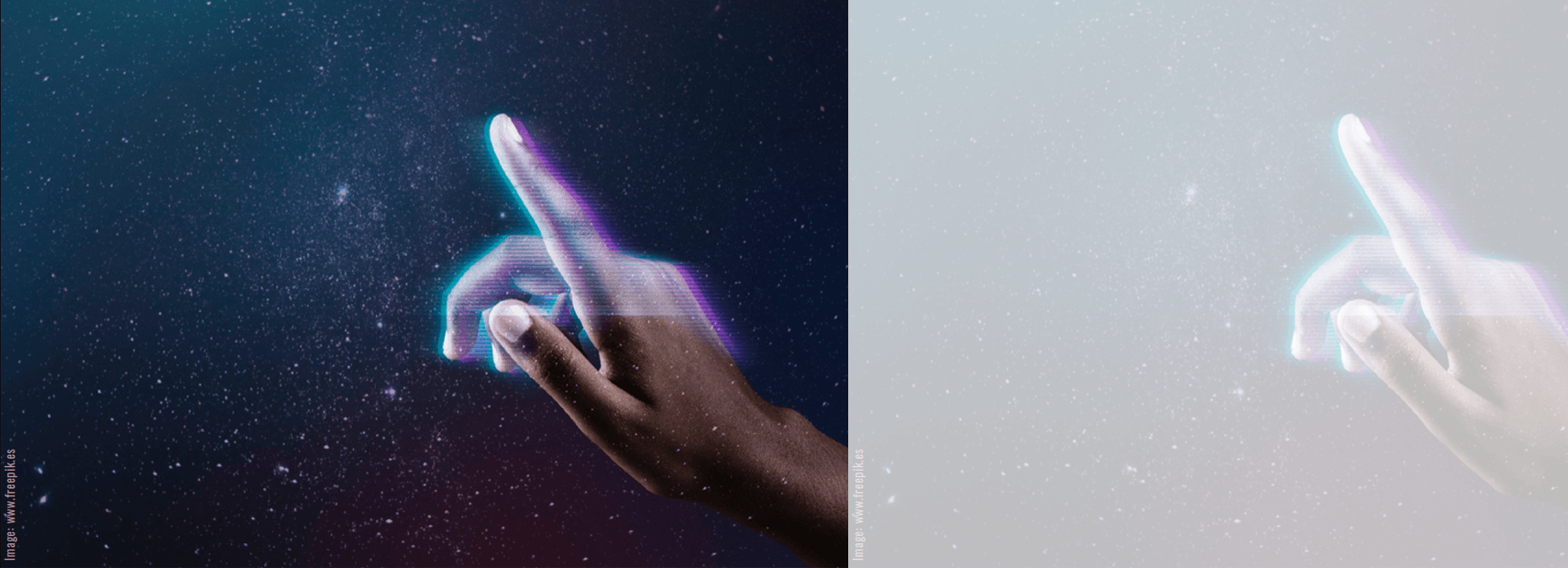
This article is being written
to share some of the understanding
about the future that is
ahead of us generally regardless
of whatever age group that
you belong to. The future is a
journey of the unknown where
there are a lot of uncertainities
and many expectations that
would happen in different sectors
across the world. Being in
the Future would require you
to be able to understand the
issues about yourself and the
kind of journey that you want
to create daily. In the future
the first thing that would speak
about you as well as things
that are around you is how you
define your personal branding
which has a lot of effect
on the way you create your
relationship in the society. In
the Future every sector in the
world would have an effect
of technology present in the
project which is something
you can escape and would be
used in telling your stories
in your journey.
The future
would have a lot of uncomfortable
conversations and theory
which you must adjust to and
not lose the focus in anything
that might come in place for
you which would require you
might have to make sense out
of them and see a sense of
projection of building a goal
between you and the person on
whatever matters that is being
discussed between two parties.
The Future is already making
us to understand that we need
to know that there must be an
open issue towards making
sure we are able to create our
legacy in every way that we
can in the society. In the future be rest assured that everything
in life is a process and
it would take a lot of time to
make sure that things are fixed
in their due earnest to achieve
the required goal. Age is not a
guarantee for you to be able to
achieve the future that you desire
to create in your career or
in your life journey.
When you
are making descisions in the
future, One thing you must be
able to understand is that the
future is love and the matter of
the Sustainable Development
Goals is an important criteria
that would be speaking into the
future of progress.
In conclusion to summarize
this article, I would like to
share that the future has to do
with hope and leadership
and we must be ready regardless
of our age category to be
able to take on the journey
with the hope of always willing
to learn and always hoping to
achieve something by winning
from the action that we are
able to make every single day
of our lives as we progess.
 If you are a parent, you may have been
given messages simplifying ODD such
as: Inconsistent parenting / discipline
or the ‘disorder’ is causing your child’s
behaviors. We need to shift that thinking
with these counterpoints:
Many children from a wide variety of
backgrounds are diagnosed with ODD.
Children from stable families are also
diagnosed with ODD. When we look
closely, we often see in the child’s early
history an emotional vulnerability and
tendency towards fight-or-flight reactions
to a wide range of triggers, including
seemingly innocuous ones.
Don’t blame the disorder. As Dr. Stephen
Porges explains, fight or flight (oppositional,
defiant) behaviors are the result
of the subconscious threat detection
system (neuroception) falsely sensing
danger. This conceptualization involves underlying brain feedback systems.
Discipline isn’t always the answer.
The way to help children feel safe is
not more rules and punishments —
which make them feel blamed— but
rather personal attunement to helping
the child manage these intense stress
responses. We need to become investigators
as to the range of individual
differences that contribute to children’s
emotional vulnerability, and help them
construct new meanings from the sensations
they experience leading to the
challenging behaviors.
Seek the right professional. Find
a therapist who is open to the idea
that oppositional behavior can have a
variety of causes. Be wary of those who
urge ‘behavior management’ in isolation
from supportive ... Read full text:
Read full text:
If you are a parent, you may have been
given messages simplifying ODD such
as: Inconsistent parenting / discipline
or the ‘disorder’ is causing your child’s
behaviors. We need to shift that thinking
with these counterpoints:
Many children from a wide variety of
backgrounds are diagnosed with ODD.
Children from stable families are also
diagnosed with ODD. When we look
closely, we often see in the child’s early
history an emotional vulnerability and
tendency towards fight-or-flight reactions
to a wide range of triggers, including
seemingly innocuous ones.
Don’t blame the disorder. As Dr. Stephen
Porges explains, fight or flight (oppositional,
defiant) behaviors are the result
of the subconscious threat detection
system (neuroception) falsely sensing
danger. This conceptualization involves underlying brain feedback systems.
Discipline isn’t always the answer.
The way to help children feel safe is
not more rules and punishments —
which make them feel blamed— but
rather personal attunement to helping
the child manage these intense stress
responses. We need to become investigators
as to the range of individual
differences that contribute to children’s
emotional vulnerability, and help them
construct new meanings from the sensations
they experience leading to the
challenging behaviors.
Seek the right professional. Find
a therapist who is open to the idea
that oppositional behavior can have a
variety of causes. Be wary of those who
urge ‘behavior management’ in isolation
from supportive ... Read full text:
Read full text:
 On a rainy day in Shiprock, New
Mexico, with slippery clay earth
caking our boots, Graham Biyáál takes
me on a tour of his four acre corn field
where he lives and works. ... Biyáál’s
blue corn stalks are impressive, standing
twelve feet high.
Under a tarp protecting him from
the rain, he gazes out at his corn field.
Jars of colorful seeds sit on the table
in front of him. The seeds were given
to him by elders and mentors from his
Navajo community. The corn stalks
Biyáál is growing have a legacy in the
Navajo tradition. Biyáál works everyday
to preserve his ancestors’ legacy
by growing and sharing the crops.
He remembers when his grandfather
first showed him the legacy of corn.
“I remember we were walking around
with one of my grandpas, and we went
into the cornfield. He picked a corn and
he said, ‘you can grow a whole field
from this. This is like thousands of
years in this corn, and now it’s yours.”
During the pandemic, Biyáál started
selling his blue corn kernels online
with a modest sales goal of selling
12 jars. “The response from that
was phenomenal. Within minutes, all
of them were sold. There’s a market
there,” Biyáál remembers. That was
three years ago. Now, he’s selling more
products online and connects with a
bigger audience through his over 13,000
Twitter followers. ...
Read full text:
On a rainy day in Shiprock, New
Mexico, with slippery clay earth
caking our boots, Graham Biyáál takes
me on a tour of his four acre corn field
where he lives and works. ... Biyáál’s
blue corn stalks are impressive, standing
twelve feet high.
Under a tarp protecting him from
the rain, he gazes out at his corn field.
Jars of colorful seeds sit on the table
in front of him. The seeds were given
to him by elders and mentors from his
Navajo community. The corn stalks
Biyáál is growing have a legacy in the
Navajo tradition. Biyáál works everyday
to preserve his ancestors’ legacy
by growing and sharing the crops.
He remembers when his grandfather
first showed him the legacy of corn.
“I remember we were walking around
with one of my grandpas, and we went
into the cornfield. He picked a corn and
he said, ‘you can grow a whole field
from this. This is like thousands of
years in this corn, and now it’s yours.”
During the pandemic, Biyáál started
selling his blue corn kernels online
with a modest sales goal of selling
12 jars. “The response from that
was phenomenal. Within minutes, all
of them were sold. There’s a market
there,” Biyáál remembers. That was
three years ago. Now, he’s selling more
products online and connects with a
bigger audience through his over 13,000
Twitter followers. ...
Read full text:
 Imaging technologies are increasingly
used to generate high-resolution
reference maps of brain structure and
function. Comparing experimentally
generated maps to these reference
maps facilitates cross-disciplinary
scientific discovery.
Although recent data sharing initiatives
increase the accessibility of brain
maps, data are often shared in disparate
coordinate systems, precluding
systematic and accurate comparisons.
Here we introduce neuromaps, a toolbox
for accessing, transforming and
analyzing structural and functional
brain annotations. We implement
functionalities for generating highquality
transformations between four
standard coordinate systems.
The toolbox includes curated reference
maps and biological ontologies of
the human brain, such as molecular,
microstructural, electrophysiological,
developmental and functional ontologies.
Robust quantitative assessment
of map-to-map similarity is enabled
via a suite of spatial autocorrelationpreserving
null models.
Neuromaps combines open-access
data with transparent functionality for
standardizing and comparing brain
maps, providing a systematic workflow
for comprehensive structural and functional
annotation enrichment analysis
of the human brain. ...
Imaging technologies are increasingly
used to generate high-resolution
reference maps of brain structure and
function. Comparing experimentally
generated maps to these reference
maps facilitates cross-disciplinary
scientific discovery.
Although recent data sharing initiatives
increase the accessibility of brain
maps, data are often shared in disparate
coordinate systems, precluding
systematic and accurate comparisons.
Here we introduce neuromaps, a toolbox
for accessing, transforming and
analyzing structural and functional
brain annotations. We implement
functionalities for generating highquality
transformations between four
standard coordinate systems.
The toolbox includes curated reference
maps and biological ontologies of
the human brain, such as molecular,
microstructural, electrophysiological,
developmental and functional ontologies.
Robust quantitative assessment
of map-to-map similarity is enabled
via a suite of spatial autocorrelationpreserving
null models.
Neuromaps combines open-access
data with transparent functionality for
standardizing and comparing brain
maps, providing a systematic workflow
for comprehensive structural and functional
annotation enrichment analysis
of the human brain. ...
 A new University of Southern California
(USC) study of new fathers
reveals that their brains undergo measurable
changes after their babies arrive.
Some involve slight brain shrinkage.
It appears that the brain’s changes in
new fathers largely affects areas linked
to empathy and visual processing. Such
changes are believed to contribute to
neuroplasticity —the brain’s ability to
create and form new synaptic connections
to adapt to new experiences.
“Becoming a parent entails changes
to your lifestyle and your biology,”
said Darby Saxbe, the study’s senior
author who is a professor of psychology
at USC Dornsife College of Letters,
Arts and Sciences. “And it requires new
skills like being able to empathize with a nonverbal infant, so it makes sense
but has not been proven that the brain
would be particularly plastic during the
transition to parenthood as well.”
The study appeared in the journal
Cerebral Cortex. The work involved
brain scans of 40 expectant fathers
—20 in the United States and 20 in
Spain. For a comparison, the researchers
also studied a group of 17 childless
fathers that had been scanned in
Spain. The scientists identified that the
most significant changes, both in the
Spanish and American men, occurred
in the cortex — the brain's outer layer
that is involved with attention, planning
and executive functioning. ...
Read full text
A new University of Southern California
(USC) study of new fathers
reveals that their brains undergo measurable
changes after their babies arrive.
Some involve slight brain shrinkage.
It appears that the brain’s changes in
new fathers largely affects areas linked
to empathy and visual processing. Such
changes are believed to contribute to
neuroplasticity —the brain’s ability to
create and form new synaptic connections
to adapt to new experiences.
“Becoming a parent entails changes
to your lifestyle and your biology,”
said Darby Saxbe, the study’s senior
author who is a professor of psychology
at USC Dornsife College of Letters,
Arts and Sciences. “And it requires new
skills like being able to empathize with a nonverbal infant, so it makes sense
but has not been proven that the brain
would be particularly plastic during the
transition to parenthood as well.”
The study appeared in the journal
Cerebral Cortex. The work involved
brain scans of 40 expectant fathers
—20 in the United States and 20 in
Spain. For a comparison, the researchers
also studied a group of 17 childless
fathers that had been scanned in
Spain. The scientists identified that the
most significant changes, both in the
Spanish and American men, occurred
in the cortex — the brain's outer layer
that is involved with attention, planning
and executive functioning. ...
Read full text
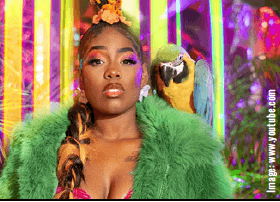 1 Soraia Ramos (Cape Verde). As a
Kizomba singer with a pinch of hiphop
and a dash of R&B, the 28-year old
Portuguese-Cape Verdean singer rose to
stardom with the release of her YouTube
music video ‘O Nisso Amor.’ 2 Tems (Nigeria).
Temilade Openiyi
is a rising artist who
has gained international
recognition.
The award-winning
R&B Afrobeats singer was featured
by popular artists like Drake, Brent
Fayaz, Justin Bieber, and Wizkid. 3 Bruce Melodie
(Rwanda). The
versatile singer, songwriter,
dancer, music
producer, and actor has
great albums like Ntundize
and Best of Butera Knowles, as well as
his EP, Ikinya. The artist has shown that
he has much more to offer the world.
Read full text:
1 Soraia Ramos (Cape Verde). As a
Kizomba singer with a pinch of hiphop
and a dash of R&B, the 28-year old
Portuguese-Cape Verdean singer rose to
stardom with the release of her YouTube
music video ‘O Nisso Amor.’ 2 Tems (Nigeria).
Temilade Openiyi
is a rising artist who
has gained international
recognition.
The award-winning
R&B Afrobeats singer was featured
by popular artists like Drake, Brent
Fayaz, Justin Bieber, and Wizkid. 3 Bruce Melodie
(Rwanda). The
versatile singer, songwriter,
dancer, music
producer, and actor has
great albums like Ntundize
and Best of Butera Knowles, as well as
his EP, Ikinya. The artist has shown that
he has much more to offer the world.
Read full text:
 Keeping her culture alive and helping
other Native Americans break
into Hollywood is what fuels Karissa
Valencia, creator and showrunner of the
animated Netflix series Spirit Rangers.
The fantasy-adventure preschool
series is all about celebrating community,
nature and the heritage of Native
American storytelling. It’s also the kind
of show Valencia wishes she would
have had as a child.
“Growing up on and off the reservation,
when I was home it was always so meaningful to
me that my family
and my tribe were
doing everything
they could to keep
our culture alive and
would always share
our traditional stories
of our land and
place,” Valencia,
who is half Mexican
and half Chumash, told Today via Zoom. “So I grew up
hearing stories of trickster coyote and
how the condor got its black feathers.”
As a young person, however, she had
the “feeling of being invisible” in pop
culture and the screens. After getting
her foot in the door in Hollywood and
working with Doc McStuffins creator
Chris Nee, who is an executive producer
of Spirit Rangers, Valencia decided to
create a series for her community.
Spirit Rangers follows Chumash/
Cowlitz siblings Kodi (Wačíŋyeya
Iwáš’aka Yracheta), Summer (Isis Celilo
Rogers) and Eddy Skycedar (Talon
Proc Alford) as they help protect the
land and the spirits of their California
national park. The three kids turn into
“spirit rangers,” becoming a grizzly
bear cub, red-tailed hawk and turtle to
complete their missions. ...
Read full text
Keeping her culture alive and helping
other Native Americans break
into Hollywood is what fuels Karissa
Valencia, creator and showrunner of the
animated Netflix series Spirit Rangers.
The fantasy-adventure preschool
series is all about celebrating community,
nature and the heritage of Native
American storytelling. It’s also the kind
of show Valencia wishes she would
have had as a child.
“Growing up on and off the reservation,
when I was home it was always so meaningful to
me that my family
and my tribe were
doing everything
they could to keep
our culture alive and
would always share
our traditional stories
of our land and
place,” Valencia,
who is half Mexican
and half Chumash, told Today via Zoom. “So I grew up
hearing stories of trickster coyote and
how the condor got its black feathers.”
As a young person, however, she had
the “feeling of being invisible” in pop
culture and the screens. After getting
her foot in the door in Hollywood and
working with Doc McStuffins creator
Chris Nee, who is an executive producer
of Spirit Rangers, Valencia decided to
create a series for her community.
Spirit Rangers follows Chumash/
Cowlitz siblings Kodi (Wačíŋyeya
Iwáš’aka Yracheta), Summer (Isis Celilo
Rogers) and Eddy Skycedar (Talon
Proc Alford) as they help protect the
land and the spirits of their California
national park. The three kids turn into
“spirit rangers,” becoming a grizzly
bear cub, red-tailed hawk and turtle to
complete their missions. ...
Read full text
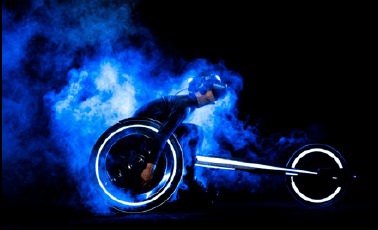 Get on CYBER WHEEL X and experience
wheelchair racing and
marathon in the VR world. Set in 2100,
the courses have been designed according
to actual 3D scans of Tokyo.
The VR vehicle on the image above is
based on the WF01TR racing wheelchair,
designed by a team of specialists
including Paralympic medalist
Tomoya Ito. On the electronically
controlled pushrims, you will feel the
load change as you climb up and down
the slopes in the video. Join races with
other players online, or race against
simulated top racers. Besides entertainment,
CYBER WHEEL X serves as an
excellent training tool for wheelchair
athletes, recording the right and left
wheel speeds and travel distances.
CYBER WHEEL was invented and
developed by 1→10, Inc. in 2017. In
2019, RDS and 1→10 brought it onto a
higher stage of evolution in pursuit of
entertainment.
Read full text:
Get on CYBER WHEEL X and experience
wheelchair racing and
marathon in the VR world. Set in 2100,
the courses have been designed according
to actual 3D scans of Tokyo.
The VR vehicle on the image above is
based on the WF01TR racing wheelchair,
designed by a team of specialists
including Paralympic medalist
Tomoya Ito. On the electronically
controlled pushrims, you will feel the
load change as you climb up and down
the slopes in the video. Join races with
other players online, or race against
simulated top racers. Besides entertainment,
CYBER WHEEL X serves as an
excellent training tool for wheelchair
athletes, recording the right and left
wheel speeds and travel distances.
CYBER WHEEL was invented and
developed by 1→10, Inc. in 2017. In
2019, RDS and 1→10 brought it onto a
higher stage of evolution in pursuit of
entertainment.
Read full text:
 Urine therapy (or urotherapy) is a
longstanding practice based on the
concept that urine can be drunk, bathed
in, or otherwise applied to bring good
health or even heal the body of certain
ailments. Unusual as it may sound to
most people, it’s an idea that persists
even today. And like most things of this
nature, it has taken on a life of its own
online. But is there any evidence urine
therapy works? To cut to the chase, no.
Urine is waste and should be left excreted
from the body.
Urine is excreted from the kidneys as
they filter blood, keeping what the body
needs and removing the waste as urine,
which is stored in the bladder until we
pee. Urine is 95% water. The remaining
ingredients include urea (2%) and creatinine
(0.1%), alongside trace elements
of various salts and proteins. Urea is a
safe organic compound, which occurs
naturally when proteins are metabolised.
Urea-based formulations can be found in
skin and nail softening lotions, helping
to improve the skin’s barrier function.
However, although urea is present in
urine, its concentration is simply too low
to offer any therapeutic benefit. ...
The fact is excreted urine can be quite
harmful. There are only a few ways the
body can remove waste from its system,
and this is done primarily through
urine, faeces and sweat. ...
Read full text:
Urine therapy (or urotherapy) is a
longstanding practice based on the
concept that urine can be drunk, bathed
in, or otherwise applied to bring good
health or even heal the body of certain
ailments. Unusual as it may sound to
most people, it’s an idea that persists
even today. And like most things of this
nature, it has taken on a life of its own
online. But is there any evidence urine
therapy works? To cut to the chase, no.
Urine is waste and should be left excreted
from the body.
Urine is excreted from the kidneys as
they filter blood, keeping what the body
needs and removing the waste as urine,
which is stored in the bladder until we
pee. Urine is 95% water. The remaining
ingredients include urea (2%) and creatinine
(0.1%), alongside trace elements
of various salts and proteins. Urea is a
safe organic compound, which occurs
naturally when proteins are metabolised.
Urea-based formulations can be found in
skin and nail softening lotions, helping
to improve the skin’s barrier function.
However, although urea is present in
urine, its concentration is simply too low
to offer any therapeutic benefit. ...
The fact is excreted urine can be quite
harmful. There are only a few ways the
body can remove waste from its system,
and this is done primarily through
urine, faeces and sweat. ...
Read full text:
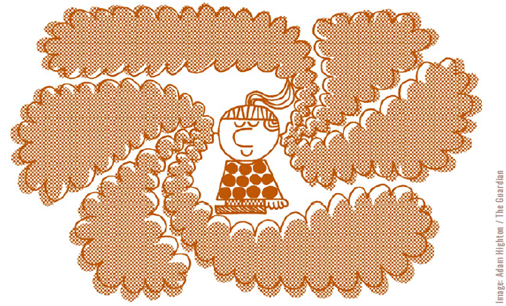 The ‘brown’ in brown noise is a reference
to sound that mimics Brownian
motion, the movement pollen makes in
water, identified by the botanist Robert
Brown in 1827. In essence, brown noise is
the familiar, staticky sound of white noise
(all the audible frequencies simultaneously)
but with the low frequency notes
augmented and the less pleasant high
frequency notes turned down, counteracting
the human ear’s natural tendency
to hear higher frequencies louder.
“Brown noise is a more palatable
listening experience because most of the
higher frequencies, which can be harsh or
distracting to the listener, are removed,”
says Giles Williams, the music director of
commercial music service Rehegoo. ...
The staticky sound of white noise has been demonstrated to improve sleep and
some cognitive tasks for children with
ADHD. ... [Brown noise] has fans beyond
the ADHD community, including the
author Zadie Smith. “I listen to brown
noise day and night. I live in this denuded
soundscape.” My colleague Nikola
discovered brown noise at university.
“I would only manage to concentrate in
coffee shops. When I couldn’t afford to
go to a coffee shop, I tried finding coffee
shop sounds on YouTube, and then I
found something called ‘brown noise for
concentration’. Ever since, I use it every
time my mind is all over the place and I
need to get work done.” ...
Read full text:
The ‘brown’ in brown noise is a reference
to sound that mimics Brownian
motion, the movement pollen makes in
water, identified by the botanist Robert
Brown in 1827. In essence, brown noise is
the familiar, staticky sound of white noise
(all the audible frequencies simultaneously)
but with the low frequency notes
augmented and the less pleasant high
frequency notes turned down, counteracting
the human ear’s natural tendency
to hear higher frequencies louder.
“Brown noise is a more palatable
listening experience because most of the
higher frequencies, which can be harsh or
distracting to the listener, are removed,”
says Giles Williams, the music director of
commercial music service Rehegoo. ...
The staticky sound of white noise has been demonstrated to improve sleep and
some cognitive tasks for children with
ADHD. ... [Brown noise] has fans beyond
the ADHD community, including the
author Zadie Smith. “I listen to brown
noise day and night. I live in this denuded
soundscape.” My colleague Nikola
discovered brown noise at university.
“I would only manage to concentrate in
coffee shops. When I couldn’t afford to
go to a coffee shop, I tried finding coffee
shop sounds on YouTube, and then I
found something called ‘brown noise for
concentration’. Ever since, I use it every
time my mind is all over the place and I
need to get work done.” ...
Read full text:
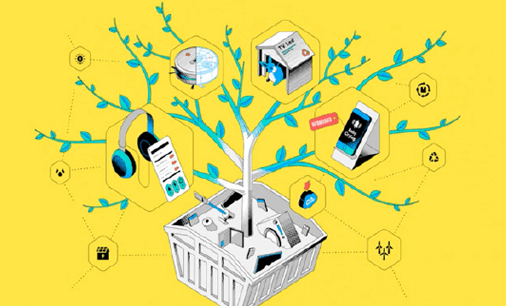 In 2020, the United Nations published
a report on electronic waste —and the
findings were bracing. The world was
producing a record 53.6 million metric
tonnes of e-waste per year, the equivalent
of over a million Boeing 737s. Comprising
everything from video cameras
and televisions to vacuum cleaners and
dishwashers, this contained $57 billion
of raw materials, more than the GDP of
many countries —of which only 17.4 percent
was recycled. More troubling still,
the UN forecast that on current trends,
annual e-waste generation will grow to
74.7 million metric tonnes by 2030.
This is not only a public health concern,
because e-waste contains harmful
substances, but it’s a stark environmental
issue —and that’s before you even
consider the lifetime energy use of all
those devices. The UN forecasts that
this year, the world’s population will
hit eight billion people; 20 years prior,
it had just passed six billion. ...
Recycling might seem to be the silver
bullet. Indeed, consumer tech brands
are trying to tackle recycling challenges
and use ever more ‘closed-loop’ materials.
Take Apple, which has created
various robots to aid recycling efforts:
one model is called Daisy, which can
disassemble 200 iPhones per hour;
there’s also Dave which recovers rareearth
magnets, tungsten and steel; and
Taz, which reclaims magnets from audio
modules. ... But recycling can’t be
the whole story – solving this problem
will need a multifaceted solution. ...
In 2020, the United Nations published
a report on electronic waste —and the
findings were bracing. The world was
producing a record 53.6 million metric
tonnes of e-waste per year, the equivalent
of over a million Boeing 737s. Comprising
everything from video cameras
and televisions to vacuum cleaners and
dishwashers, this contained $57 billion
of raw materials, more than the GDP of
many countries —of which only 17.4 percent
was recycled. More troubling still,
the UN forecast that on current trends,
annual e-waste generation will grow to
74.7 million metric tonnes by 2030.
This is not only a public health concern,
because e-waste contains harmful
substances, but it’s a stark environmental
issue —and that’s before you even
consider the lifetime energy use of all
those devices. The UN forecasts that
this year, the world’s population will
hit eight billion people; 20 years prior,
it had just passed six billion. ...
Recycling might seem to be the silver
bullet. Indeed, consumer tech brands
are trying to tackle recycling challenges
and use ever more ‘closed-loop’ materials.
Take Apple, which has created
various robots to aid recycling efforts:
one model is called Daisy, which can
disassemble 200 iPhones per hour;
there’s also Dave which recovers rareearth
magnets, tungsten and steel; and
Taz, which reclaims magnets from audio
modules. ... But recycling can’t be
the whole story – solving this problem
will need a multifaceted solution. ...
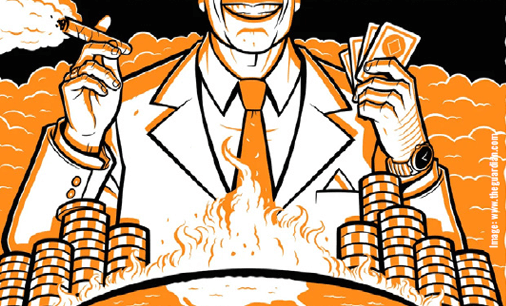 I was a kid when the invasions of Iraq
and Afghanistan began, but I could
see what was happening. Corporations
were cashing in however possible:
selling beans, bullets and band-aids,
signing lucrative construction contracts
for new military bases, replacing public
employees with private contractors from
combat units to the VA hospital, and
capitalizing on opportunities to make
big money in reconstruction and oil.
Now, as an environmental activist
and author, I apply the same logic to
the climate crisis. There are surprising
parallels between the ‘war on terror’
in Iraq and Afghanistan and climate
change. Both are characterized by
public fear, existential risks, geopolitical
power struggles, manipulation of public opinion, and huge sums of money. As
global warming intensifies, trillions of
dollars in government subsidies and
consumer spending are flowing to makers
of ‘green technology.’ Car manufacturers
from Ford to Volkswagen have
announced plans to stop making gas
and diesel cars, and instead manufacture
only electric vehicles. And as more
intermittent wind and solar is added to
electricity grids, utilities are investing in
massive, warehouse-sized battery banks
to stabilize power supplies.
All this is driving skyrocketing
demand for raw materials such as
lithium, graphite, cobalt, nickel, and
rare earth metals. ...
Read full text:
I was a kid when the invasions of Iraq
and Afghanistan began, but I could
see what was happening. Corporations
were cashing in however possible:
selling beans, bullets and band-aids,
signing lucrative construction contracts
for new military bases, replacing public
employees with private contractors from
combat units to the VA hospital, and
capitalizing on opportunities to make
big money in reconstruction and oil.
Now, as an environmental activist
and author, I apply the same logic to
the climate crisis. There are surprising
parallels between the ‘war on terror’
in Iraq and Afghanistan and climate
change. Both are characterized by
public fear, existential risks, geopolitical
power struggles, manipulation of public opinion, and huge sums of money. As
global warming intensifies, trillions of
dollars in government subsidies and
consumer spending are flowing to makers
of ‘green technology.’ Car manufacturers
from Ford to Volkswagen have
announced plans to stop making gas
and diesel cars, and instead manufacture
only electric vehicles. And as more
intermittent wind and solar is added to
electricity grids, utilities are investing in
massive, warehouse-sized battery banks
to stabilize power supplies.
All this is driving skyrocketing
demand for raw materials such as
lithium, graphite, cobalt, nickel, and
rare earth metals. ...
Read full text:
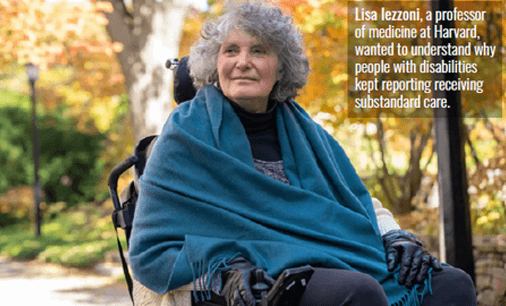 Dr. Lisa Iezzoni, a professor of medicine
at Harvard, has heard the same
story during research with hundreds of
people who have disabilities: Health care
that was substandard. Medical offices
that were not accessible. Doctors who
did not treat them with respect. ...
She proposed a study that gathered
doctors, a mix of primary care physicians
and specialists recruited from
across the US, into three focus groups
on video conferences. Protected by
anonymity the groups of eight to 10
doctors began to talk. At first, they
were guarded, but as the sessions that
Dr. Iezzoni moderated wore on, they
began to speak more frankly. In their
Zoom meetings, they could not see that
Dr. Iezzoni was seated in a wheelchair.
The study’s findings were published in
the journal Health Affairs. ... Some doctors said their office scales
could not accommodate wheelchairs, so
they had told patients to go to a supermarket,
a grain elevator, a cattle processing
plant or a zoo to be weighed ...
“Seeing patients at a 15-minute clip is
absolutely ridiculous,” one doctor said.
“To have someone say, ‘Well we’re still
going to see those patients with mild to
moderate disability in those time frames’
—it’s just unreasonable and it’s unacceptable
to me.” ...
One doctor said he had hired a sign
language interpreter for a deaf patient, a
decision which cost so much that he lost
$30 each time the patient visited. A specialist
in one focus group said disabled
patients took too much time, adding that
they were “a disruption to clinic flow.”
...
Dr. Lisa Iezzoni, a professor of medicine
at Harvard, has heard the same
story during research with hundreds of
people who have disabilities: Health care
that was substandard. Medical offices
that were not accessible. Doctors who
did not treat them with respect. ...
She proposed a study that gathered
doctors, a mix of primary care physicians
and specialists recruited from
across the US, into three focus groups
on video conferences. Protected by
anonymity the groups of eight to 10
doctors began to talk. At first, they
were guarded, but as the sessions that
Dr. Iezzoni moderated wore on, they
began to speak more frankly. In their
Zoom meetings, they could not see that
Dr. Iezzoni was seated in a wheelchair.
The study’s findings were published in
the journal Health Affairs. ... Some doctors said their office scales
could not accommodate wheelchairs, so
they had told patients to go to a supermarket,
a grain elevator, a cattle processing
plant or a zoo to be weighed ...
“Seeing patients at a 15-minute clip is
absolutely ridiculous,” one doctor said.
“To have someone say, ‘Well we’re still
going to see those patients with mild to
moderate disability in those time frames’
—it’s just unreasonable and it’s unacceptable
to me.” ...
One doctor said he had hired a sign
language interpreter for a deaf patient, a
decision which cost so much that he lost
$30 each time the patient visited. A specialist
in one focus group said disabled
patients took too much time, adding that
they were “a disruption to clinic flow.”
...
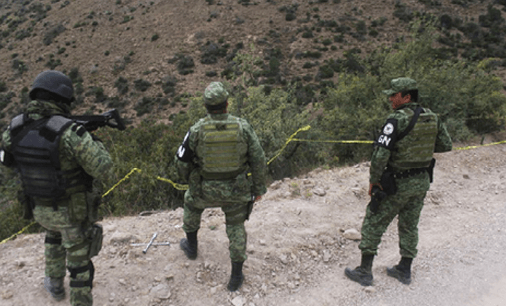 The debate about the nationalization
of lithium has again put Sonora
[Mexico] in the spotlight, as the reserves
of this mineral are in the municipality of
Bacadehuachi and the region known as
‘lithium valley,’ located in the northeast
of Sonora.
The proposal has been met with resistance
from the political opposition in
congress, as well as from the extractive
industries which, over the last decades,
has overseen mining concessions in
the northern state. Their arguments,
articulated by the Mining Chamber of
Mexico and BNamericas Group and taken
on by politicians, businessmen and
public figures, center on the supposed
non-existence of lithium in the region.
They also point to a lack of government infrastructure and technical knowledge
to mine and transform the resources.
But the reality is otherwise. That’s
what Rompeviento TV’s reportage,
titled Mexico: Lithium Exposed, showed.
Not only does Mexico have lithium, it
has the technical resources needed to
exploit it. Days after its publication, the
filmmakers received death threats.
Behind the opposition to the nationalization
of lithium there’s a cluster
of businesses that, in some cases,
have established themselves in Sonora
through violence and the displacement
of campesinos and communal landowners.
Politicians, businessmen and
crime groups have been operating mining
and agribusiness ...
...
The debate about the nationalization
of lithium has again put Sonora
[Mexico] in the spotlight, as the reserves
of this mineral are in the municipality of
Bacadehuachi and the region known as
‘lithium valley,’ located in the northeast
of Sonora.
The proposal has been met with resistance
from the political opposition in
congress, as well as from the extractive
industries which, over the last decades,
has overseen mining concessions in
the northern state. Their arguments,
articulated by the Mining Chamber of
Mexico and BNamericas Group and taken
on by politicians, businessmen and
public figures, center on the supposed
non-existence of lithium in the region.
They also point to a lack of government infrastructure and technical knowledge
to mine and transform the resources.
But the reality is otherwise. That’s
what Rompeviento TV’s reportage,
titled Mexico: Lithium Exposed, showed.
Not only does Mexico have lithium, it
has the technical resources needed to
exploit it. Days after its publication, the
filmmakers received death threats.
Behind the opposition to the nationalization
of lithium there’s a cluster
of businesses that, in some cases,
have established themselves in Sonora
through violence and the displacement
of campesinos and communal landowners.
Politicians, businessmen and
crime groups have been operating mining
and agribusiness ...
...
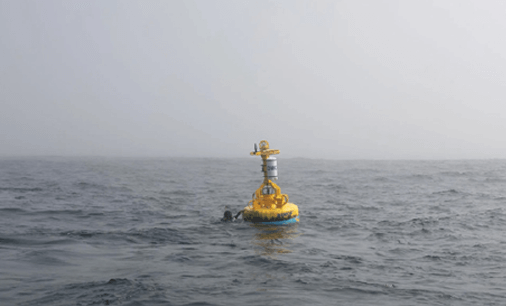 Fran washed ashore in August, some
25 miles south of the Golden Gate
Bridge. The beloved and much-photographed
female humpback whale had a
broken neck, most likely the result of
being hit by a ship. This latest instance
of oceanic roadkill increased the tally of
whales killed by ships near San Francisco
this year to four. The true death
toll is likely to be much higher as whale
carcasses often sink to the sea floor.
Scientists and conservationists are
trying to drive that number to zero. On
Wednesday [Sept. 14], Whale Safe, an
AI-powered detection system, began
operating around San Francisco Bay. Its
goal is to warn large ships in the area’s
waters when whales are nearby.
About 25 miles out to sea from the
Golden Gate on Monday [Sept 19] afternoon, a yellow buoy bobbed not
far from the great white shark hunting
grounds of the Farallon Islands. On a
boat close by called the Nova, Douglas
McCauley, director of the Benioff Ocean
Initiative at the University of California,
Santa Barbara, donned a wet suit and
snorkel and jumped into the brine to
give the buoy some TLC before its big
day. The buoy, tethered to an underwater
microphone, is an integral part
of Whale Safe. ...
Whale Safe, which has been operating
in the Santa Barbara Channel since
2020, provides near-real-time data on
the presence of whales and sends out
alerts to mariners, shipping companies
and anyone else who signs up. ...
Fran washed ashore in August, some
25 miles south of the Golden Gate
Bridge. The beloved and much-photographed
female humpback whale had a
broken neck, most likely the result of
being hit by a ship. This latest instance
of oceanic roadkill increased the tally of
whales killed by ships near San Francisco
this year to four. The true death
toll is likely to be much higher as whale
carcasses often sink to the sea floor.
Scientists and conservationists are
trying to drive that number to zero. On
Wednesday [Sept. 14], Whale Safe, an
AI-powered detection system, began
operating around San Francisco Bay. Its
goal is to warn large ships in the area’s
waters when whales are nearby.
About 25 miles out to sea from the
Golden Gate on Monday [Sept 19] afternoon, a yellow buoy bobbed not
far from the great white shark hunting
grounds of the Farallon Islands. On a
boat close by called the Nova, Douglas
McCauley, director of the Benioff Ocean
Initiative at the University of California,
Santa Barbara, donned a wet suit and
snorkel and jumped into the brine to
give the buoy some TLC before its big
day. The buoy, tethered to an underwater
microphone, is an integral part
of Whale Safe. ...
Whale Safe, which has been operating
in the Santa Barbara Channel since
2020, provides near-real-time data on
the presence of whales and sends out
alerts to mariners, shipping companies
and anyone else who signs up. ...
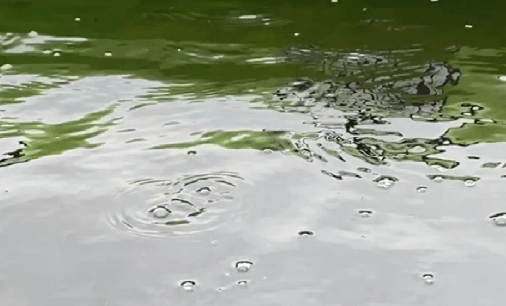 Thawing ice caps are creating brand
new lakes in Alaska, but unlike the
rest of the state’s gorgeous scenery,
tourists probably won’t be flocking
to see them anytime soon. Known as
thermokarst lakes, or thaw lakes, they
form when permafrost thaws due to
rising temperatures collapsing the
ground and forming a sinkhole. Water
eventually fills the newly formed hole,
creating a lake that’s teeming with
methane-belching bacteria. ...
Methane is a potent greenhouse
gas, so the lakes are further fueling
the climate crisis that created them
in the first place. NASA’s Arctic Boreal
Vulnerability Experiment (ABoVE) project
is studying the formation of these
thermokarst lakes to see how they might be impacting the wider environment.
Katey Walter Anthony, an
ecologist on the project, blogged about
the facts of the matter.
Permafrost is melting all over the
world at an extremely high rate, and
at Big Trail Lake, the bacteria are
producing such high quantities of gas
that there are visible bubbles rising to
the lake’s surface. As the permafrost
melts and bacteria re-animate, they
belch greenhouse gases that waft into
the atmosphere, trapping heat and
contributing to even more climate
change —and methane is more than
25 times as potent as carbon dioxide at
trapping heat. ...
...
Thawing ice caps are creating brand
new lakes in Alaska, but unlike the
rest of the state’s gorgeous scenery,
tourists probably won’t be flocking
to see them anytime soon. Known as
thermokarst lakes, or thaw lakes, they
form when permafrost thaws due to
rising temperatures collapsing the
ground and forming a sinkhole. Water
eventually fills the newly formed hole,
creating a lake that’s teeming with
methane-belching bacteria. ...
Methane is a potent greenhouse
gas, so the lakes are further fueling
the climate crisis that created them
in the first place. NASA’s Arctic Boreal
Vulnerability Experiment (ABoVE) project
is studying the formation of these
thermokarst lakes to see how they might be impacting the wider environment.
Katey Walter Anthony, an
ecologist on the project, blogged about
the facts of the matter.
Permafrost is melting all over the
world at an extremely high rate, and
at Big Trail Lake, the bacteria are
producing such high quantities of gas
that there are visible bubbles rising to
the lake’s surface. As the permafrost
melts and bacteria re-animate, they
belch greenhouse gases that waft into
the atmosphere, trapping heat and
contributing to even more climate
change —and methane is more than
25 times as potent as carbon dioxide at
trapping heat. ...
...

 A great slimline wallet designed for
folded notes, plenty of cards and a
small zipped coin section for your loose
change. www.cycleofgood.com
A great slimline wallet designed for
folded notes, plenty of cards and a
small zipped coin section for your loose
change. www.cycleofgood.com
 A lightweight drone that you
can chuck in your bag. It offers advanced obstacle
avoidance features, a rotating lens so you can film
portrait or landscape, 4K video, smart flying features like
automatic tracking and the ability to follow a subject. www.dji.com
A lightweight drone that you
can chuck in your bag. It offers advanced obstacle
avoidance features, a rotating lens so you can film
portrait or landscape, 4K video, smart flying features like
automatic tracking and the ability to follow a subject. www.dji.com

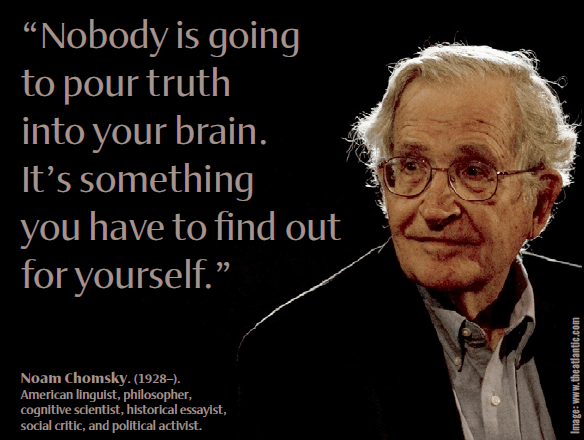 “Nobody is going
to pour truth
into your brain.
It’s something
you have to find out
for yourself.
“Nobody is going
to pour truth
into your brain.
It’s something
you have to find out
for yourself.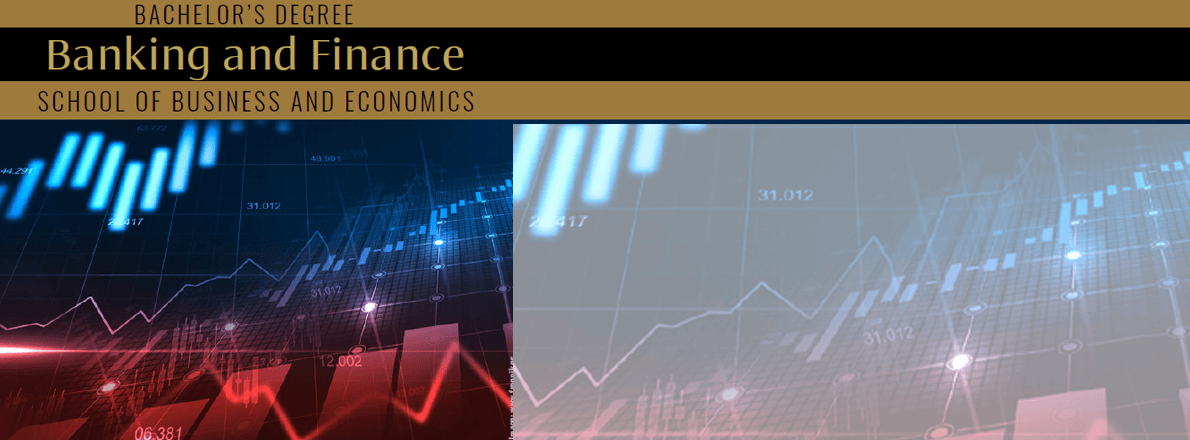 The Bachelor of Banking and Finance
(BS) program objective is
to prepare students to think critically
and finding new ways to improve the
industry. Student learns to communicate
effectively on all levels and
acquire leadership skills in the banking
industry to become an initiator of
change by making complex and difficult
decisions using modern finance,
marketing and management analysis
methods. The Bachelor of Banking and
Finance (BS) program is offered online
via distance learning. After evaluating
both academic record and life experience,
AIU staff working in conjunction
with Faculty and Academic Advisors
will assist students in setting up a
custom-made program, designed on
an individual basis. This flexibility to
meet student needs is seldom found
in other distance learning programs.
Our online program does not require
all students to take the same subjects/
courses, use the same books, or
learning materials. Instead, the online
Bachelor of Banking and Finance (BS)
curriculum is designed individually by
the student and academic advisor. It
specifically addresses strengths and
weaknesses with respect to market
opportunities in the student’s major
and intended field of work. Understanding
that industry and geographic
factors should influence the content
of the curriculum instead of a standardized
one-fits-all design is the
hallmark of AIU’s unique approach
to adult education. This philosophy
addresses the dynamic and constantly
changing environment of working
professionals by helping adult students
in reaching their professional
and personal goals within the scope of
the degree program.
The Bachelor of Banking and Finance
(BS) program objective is
to prepare students to think critically
and finding new ways to improve the
industry. Student learns to communicate
effectively on all levels and
acquire leadership skills in the banking
industry to become an initiator of
change by making complex and difficult
decisions using modern finance,
marketing and management analysis
methods. The Bachelor of Banking and
Finance (BS) program is offered online
via distance learning. After evaluating
both academic record and life experience,
AIU staff working in conjunction
with Faculty and Academic Advisors
will assist students in setting up a
custom-made program, designed on
an individual basis. This flexibility to
meet student needs is seldom found
in other distance learning programs.
Our online program does not require
all students to take the same subjects/
courses, use the same books, or
learning materials. Instead, the online
Bachelor of Banking and Finance (BS)
curriculum is designed individually by
the student and academic advisor. It
specifically addresses strengths and
weaknesses with respect to market
opportunities in the student’s major
and intended field of work. Understanding
that industry and geographic
factors should influence the content
of the curriculum instead of a standardized
one-fits-all design is the
hallmark of AIU’s unique approach
to adult education. This philosophy
addresses the dynamic and constantly
changing environment of working
professionals by helping adult students
in reaching their professional
and personal goals within the scope of
the degree program.
 Atlantic International University is accredited by the Accreditation Service for International
Schools, Colleges and Universities (ASIC). ASIC Accreditation is an internationally
renowned quality standard for colleges and universities. Visit ASIC’s Directory of Accredited
Colleges and Universities. ASIC is a member of CHEA International Quality Group
(CIQG) in the USA, an approved accreditation body by the Ministerial Department of the Home Office
in the UK, and is listed in the International Directory of the Council for Higher Education Accreditation
(CHEA). The University is based in the United States and was established by corporate charter in 1998.
Atlantic International University is accredited by the Accreditation Service for International
Schools, Colleges and Universities (ASIC). ASIC Accreditation is an internationally
renowned quality standard for colleges and universities. Visit ASIC’s Directory of Accredited
Colleges and Universities. ASIC is a member of CHEA International Quality Group
(CIQG) in the USA, an approved accreditation body by the Ministerial Department of the Home Office
in the UK, and is listed in the International Directory of the Council for Higher Education Accreditation
(CHEA). The University is based in the United States and was established by corporate charter in 1998.
 In some cases, accredited colleges
may not accept for transfer courses and degrees
completed at unaccredited colleges, and some
employers may require an accredited degree as
a basis for eligibility for employment. Potential
students should consider how the above may affect
their interests, AIU respects the unique rules and
regulations of each country and does not seek to
influence the respective authorities. In the event
that a prospective student wishes to carry out any
government review or process in regards to his
university degree, we recommend that the requirements
of such are explored in detail with the relevant
authorities by the prospective student as the
university does not intervene in such processes.
AIU students can be found in over 180 countries,
they actively participate and volunteer
in their communities as part of their academic
program and have allocated thousands of service
hours to diverse causes and initiatives. AIU
programs follow the standards commonly used by
colleges and universities in the United States with
regards to the following: academic program
structure, degree issued, transcript, and
other graduation documents.
AIU graduation documents can include
an apostille and authentication from the
US Department of State to facilitate their
use internationally.
In some cases, accredited colleges
may not accept for transfer courses and degrees
completed at unaccredited colleges, and some
employers may require an accredited degree as
a basis for eligibility for employment. Potential
students should consider how the above may affect
their interests, AIU respects the unique rules and
regulations of each country and does not seek to
influence the respective authorities. In the event
that a prospective student wishes to carry out any
government review or process in regards to his
university degree, we recommend that the requirements
of such are explored in detail with the relevant
authorities by the prospective student as the
university does not intervene in such processes.
AIU students can be found in over 180 countries,
they actively participate and volunteer
in their communities as part of their academic
program and have allocated thousands of service
hours to diverse causes and initiatives. AIU
programs follow the standards commonly used by
colleges and universities in the United States with
regards to the following: academic program
structure, degree issued, transcript, and
other graduation documents.
AIU graduation documents can include
an apostille and authentication from the
US Department of State to facilitate their
use internationally.
| Dr. Franklin Valcin President/Academic Dean |
Dr. José Mercado Chief Executive Officer Chairman of the Board of Trustees |
Ricardo González, PhD Provost |
| Dr. Ricardo Gonzalez Chief Operation Officer and MKT Director |
Linda Collazo Logistics Coordinator |
Dr. Silvia Restorff Academic Advisor |
| Dr. Miriam Garibaldi Viceprovost for Research |
Irina Ivashuk Alumni Association Coordinator |
Dr. Prakash Menon Academic Advisor |
| Dr. Ofelia Miller Director of AIU |
Clara Margalef Director of Special Projects of AIU |
Carlos Aponte Telecommunications Coordinator |
| Juan Pablo Moreno Director of Operations |
David Jung Corporate/Legal Counsel |
Dr. Nilani Ljunggren De Silva Academic Advisor |
| Paula Viera Director of Intelligence Systems |
Bruce Kim Advisor/Consultant |
Dr. Scott Wilson Academic Advisor |
| Felipe Gomez Design Director / IT Supervisor |
Thomas Kim Corporate/ Accounting Counsel |
Dr. Mohammad Shaidul Islam Academic Advisor |
| Daritza Ysla IT Coordinator |
Camila Correa Quality Assurance Coordinator |
Dr. Edgar Colon Academic Advisor |
| Nadeem Awan Chief Programming Officer |
Maricela Esparza Administrative Coordinator |
Deborah Rodriguez Academic Tutor Coordinator |
| Dr. Jack Rosenzweig Dean of Academic Affairs |
Chris Benjamin IT and Hosting Support |
Cyndy Dominguez Academic Tutor Coordinator |
| Dr. Edward Lambert Academic Director |
Mayra Bolivar Accounting Coordinator |
Kinmberly Diaz Admissions Support Tutor |
| Dr. Ariadna Romero Advisor Coordinator |
Roberto Aldrett Communications Coordinator |
Amalia Aldrett Admissions Coordinator |
| Nadia Gabaldon Academic Coordinator |
Giovanni Castillo IT Support |
Sandra Garcia Admissions Coordinator |
| Jhanzaib Awan Senior Programmer |
Jaime Rotlewicz Dean of Admissions |
Jose Neuhaus Admissions Support |
| Leonardo Salas Human Resource Manager |
Dr. Mario Rios Academic Advisor |
Junko Shimizu Admissions Coordinator |
| Benjamin Joseph IT and Technology Support |
Michael Phillips Registrar’s Office |
Veronica Amuz Admissions Coordinator |
| Rosie Perez Finance Coordinator |
Rene Cordon Admissions Support |
Alba Ochoa Admissions Coordinator |
| Chris Soto Admissions Counselor |
Jenis Garcia Admissions Counselor |
|
 The School of Business and Economics
allows aspiring and practicing
professionals, managers, and entrepreneurs
in the private and public sectors
to complete a self paced distance
learning degree program of the highest
academic standard.
The ultimate goal is to empower
learners and help them take advantage
of the enormous array of resources
from the world environment in order
to eliminate the current continuum of
poverty and limitations.
Degree programs are designed for
those students whose professional experience has been in business,
marketing, administration, economics,
finance and management.
The School of Business and Economics
allows aspiring and practicing
professionals, managers, and entrepreneurs
in the private and public sectors
to complete a self paced distance
learning degree program of the highest
academic standard.
The ultimate goal is to empower
learners and help them take advantage
of the enormous array of resources
from the world environment in order
to eliminate the current continuum of
poverty and limitations.
Degree programs are designed for
those students whose professional experience has been in business,
marketing, administration, economics,
finance and management.
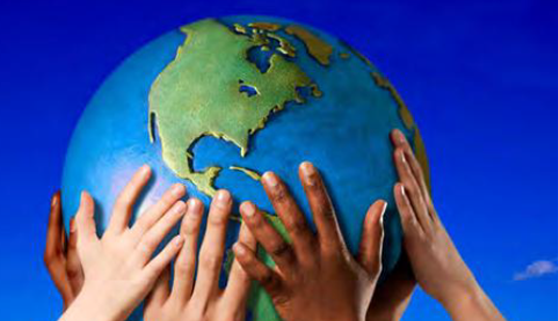 The School of Social and Human Studies
is focused on to the development of
studies which instill a core commitment
to building a society based on social and
economic justice and enhancing opportunities
for human well being.
The founding principles lie on the
basic right of education as outlined
in the Declaration of Human Rights.
We instill in our students a sense of
confidence and self reliance in their
ability to access the vast opportunities
available through information channels,
the world wide web, private, public,
nonprofit, and nongovernmental organizations in an ever expanding
global community.
Degree programs are aimed towards
those whose professional life has been
related to social and human behavior,
with the arts, or with cultural studies.
The School of Social and Human Studies
is focused on to the development of
studies which instill a core commitment
to building a society based on social and
economic justice and enhancing opportunities
for human well being.
The founding principles lie on the
basic right of education as outlined
in the Declaration of Human Rights.
We instill in our students a sense of
confidence and self reliance in their
ability to access the vast opportunities
available through information channels,
the world wide web, private, public,
nonprofit, and nongovernmental organizations in an ever expanding
global community.
Degree programs are aimed towards
those whose professional life has been
related to social and human behavior,
with the arts, or with cultural studies.
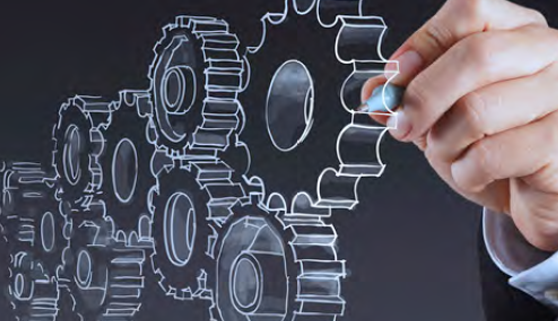 The School of Science and Engineering
seeks to provide dynamic, integrated,
and challenging degree programs
designed for those whose experience
is in industrial research, scientific production,
engineering and the general
sciences. Our system for research and
education will keep us apace with the
twenty-first century reach scientific
advance in an environmentally and
ecologically responsible manner to allow
for the sustainability of the human
population. We will foster among our
students a demand for ethical behavior,
an appreciation for diversity, an understanding
of scientific investigation, knowledge of design innovation, a
critical appreciation for the importance
of technology and technological change
for the advancement of humanity.
The School of Science and Engineering
seeks to provide dynamic, integrated,
and challenging degree programs
designed for those whose experience
is in industrial research, scientific production,
engineering and the general
sciences. Our system for research and
education will keep us apace with the
twenty-first century reach scientific
advance in an environmentally and
ecologically responsible manner to allow
for the sustainability of the human
population. We will foster among our
students a demand for ethical behavior,
an appreciation for diversity, an understanding
of scientific investigation, knowledge of design innovation, a
critical appreciation for the importance
of technology and technological change
for the advancement of humanity.
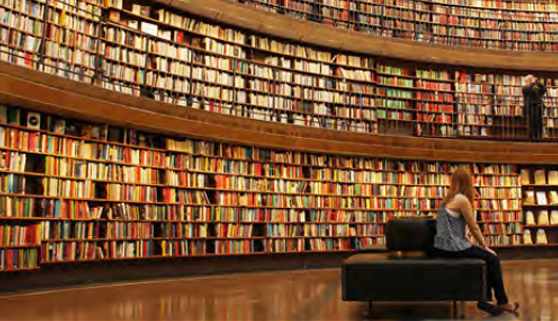 With access to a global catalog created and maintained collectively by more than
9,000 participating institutions, AIU students have secured excellent research
tools for their study programs.
With access to a global catalog created and maintained collectively by more than
9,000 participating institutions, AIU students have secured excellent research
tools for their study programs.